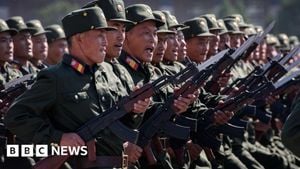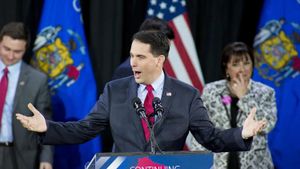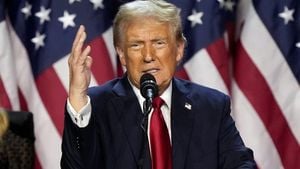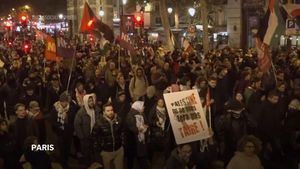On November 15th, German Chancellor Olaf Scholz engaged in his first conversation with Russian President Vladimir Putin since December 2022. The hour-long phone call came amid pressing global concerns about the war in Ukraine, particularly as Russian forces continue their advances and the situation on the battlefield appears increasingly grim for Ukrainian troops.
During the call, Scholz called on Putin to pull back Russian troops and initiate negotiations with Ukraine to pave the way for what he described as "a just and lasting peace." The German leader's appeal highlights Germany's firm stance of continuing to support Ukraine throughout the conflict, particularly as winter approaches and military supplies dwindle.
A spokesperson for Scholz emphasized the unwavering determination of Germany to aid Ukraine: "The Chancellor urged Russia to show willingness to enter talks with Ukraine with the aim of achieving a just and lasting peace," said the spokesperson, underlining the serious tone of the discussion.
Despite Scholz's requests, the Kremlin's reaction suggested substantial preconditions for any discussions moving forward. Putin reiterated the need for peace negotiations to respect Russia's security interests and "new territorial realities," alluding to Moscow's controversial annexation of Ukrainian territory over the past two years. This creates complexity as it indicates any potential truce could hinge on Ukraine forsaking NATO membership, which has been one of Kyiv's key objectives.
This significant diplomatic exchange occurs against the backdrop of the upcoming February 23 snap elections in Germany, where Scholz's Social Democrats are under pressure from populist factions advocating for stronger diplomatic ties with Russia. His recent discussions are viewed as partly motivated by internal political dynamics, as tensions with right-wing and left-wing parties grow over the extent of Germany's military support for Ukraine.
Following the call, Ukrainian President Volodymyr Zelensky expressed his concerns openly, claiming the dialogue opened "a Pandora's box". He criticized Scholz for potentially undermining efforts to isolate Putin. "This is exactly what Putin has been wanting for a long time: it is extremely important for him to weaken his isolation, to have normal negotiations, much which will lead to nothing," Zelensky said. His remarks reflect deep concerns within Ukraine about the ramifications of renewing dialogue with Moscow, especially at this precarious time when Ukrainian forces are facing intense pressure.
The phone call also follows heightened concerns over North Korean military involvement as reports suggest thousands of North Korean soldiers are reportedly supporting Russia's war efforts. Scholz made it clear during the call to Putin his worries surrounding this development, warning of serious escalation if true. Scholz's condemnation of these military collaborations underlines Germany's role as Ukraine's leading supporter within Europe.
Meanwhile, both sides have suggested they will continue communications moving forward. Kremlin officials described the exchange as "detailed and frank," indicating Russia's openness to maintaining dialogue with Germany, albeit with strict conditions related to security and territorial integrity.
The stakes are particularly high for not just Ukraine but for Europe as this conflict significantly influences regional geopolitical stability. The West is watching closely how the new administration under President-elect Donald Trump will approach military support for Ukraine. Trump's previous statements have sparked apprehensions about future commitments and support from the United States, the largest donor to Ukraine.
Zelensky's administration has been vocal about fears surrounding potential shifts in U.S. policy, especially as Trump has previously hinted at resolving the conflict swiftly, albeit without detailing his strategy.
Scholz’s attempts to reinvigorate dialogue reflect Germany’s complex position within the EU and NATO, balancing the need for unity against Russia with maintaining strong support for Ukraine’s sovereignty. The German Chancellor aims to enough diplomatic space for negotiations, albeit under conditions unacceptable to Ukraine, igniting skepticism over the reliability of returning to negotiated peace.
This geopolitical chess game will only intensify as more countries adopt stances on negotiating with Russia versus continuing sanctions and military pressures. For now, Scholz's engagement may have provided Putin with just the opportunity he seeks to lessen his international isolation, even as it raises serious concerns among European allies and Ukraine itself about the sincerity and potential outcomes of any future talks.



